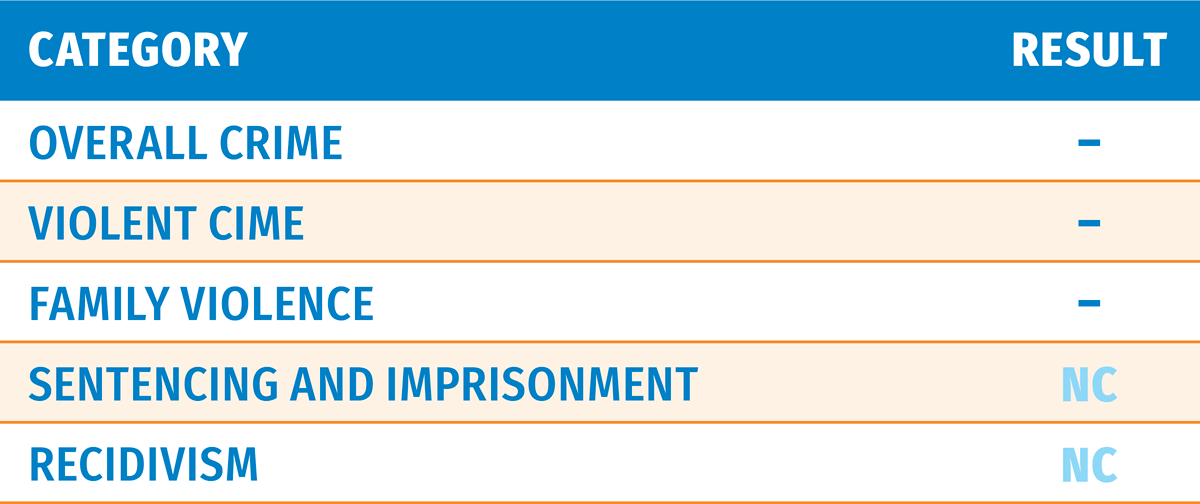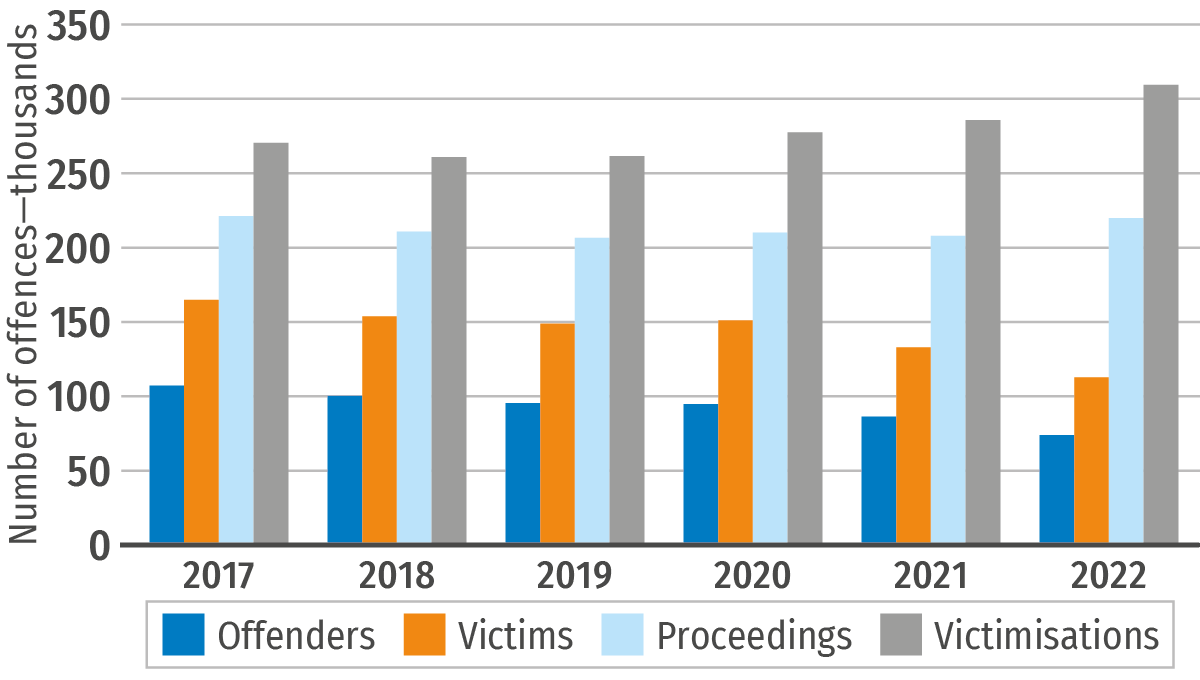You are here
Crime and Punishment
The criminal justice system in Aotearoa aims to ensure the safety of our communities by holding people who offend to account, but also to ensure the safety and wellbeing of those who are victims of crime. Essentially, victims and offenders are two sides of the same coin of criminal justice. A fair, equitable and just criminal judiciary system is one that balances the coin and ensures both sides of the coin are addressed.
The number of victims and reports of victimisations reported to police increased last year, with levels of victimisations now at 309,114. However, the numbers of proceedings against alleged offenders declined significantly in 2022. The backlog in our courts system created by the impact of Covid-19 lockdown restrictions has severely impacted the courts’ ability to administer justice. Overall, the number of criminal cases that are moving in and out of the court have been declining, however, the number of jury trials has increased by almost 60 percent since 2017. The delay in the courts system has a flow-on effect into other areas of the justice system, particularly the increasing remand population.
Summary of police proceedings—2017–2022 (June Years)
Overall, violent crime remained relatively unchanged in 2022, however it continues to remain higher than levels seen in 2017. Two violent offences that increased in the past year were murder and assaults, while all other offence types declined. Only 41.2 percent of violent offence victimisations were resolved 180 days after reporting to police—the resolution of violent offences has continued to decline year on year.
Family violence remains a contentious issue for our justice system—in 2022, 175,609 family harm incidents (FHI) were reported to the police, a 5 percent increase from 2021. In addition, the proportion of FHI that police deemed an offence also increased (8.6%); however, the number of charges, people charged and convictions for family violence have declined significantly in 2022, so fewer family violence offences were resolved in the formal justice system.
Percentage of prison population on Remand (June Annual)

The trend towards community sentences has continued to increase with fewer people being imprisoned and more people being given community sentences. The prison muster continues to remain low at 7964; however, the remand population is now at its highest, representing 41 percent of the prison population by September 2022. The overall rates for imprisonment and recidivism rates for Māori have continued to gradually decline, however the disparity compared to non-Māori continues to be a concern. Māori are six to seven times more likely to be imprisoned than non-Māori. Māori are also more likely to be reimprisoned and reconvicted than non-Māori, particularly after being out of prison for two years. We continue to highlight disparity around long-term recidivism as we have done before, this illustrates that long-term reintegration support targeted towards Māori can help to mitigate the growing disparity.
The increasing numbers of victims, victimisations, family harm incidents and remand population—and lower levels of resolution—show that there are significant areas in the justice system that need to be urgently addressed.
Family Harm Investigations—2017–2022

Sections: Home | Introduction | Children & Youth | Work and Incomes | Housing | Crime and Punishment | Social Hazards | Māori Wellbeing
Data: Interactive Dashboard
Download State of the Nation: Full report | Summary document

